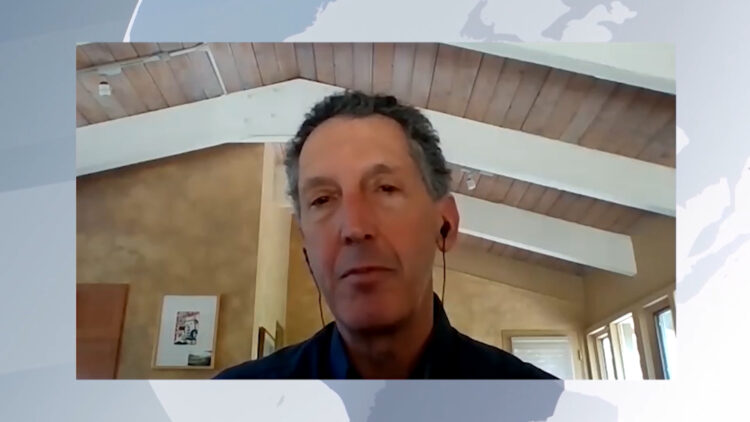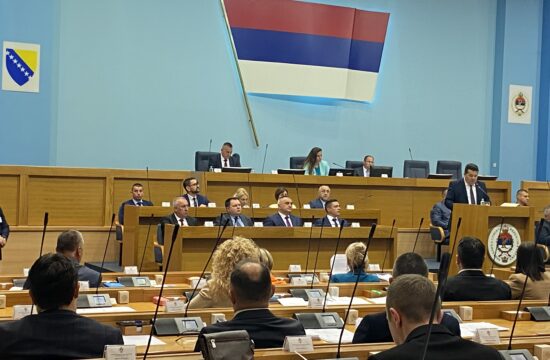
Genocide denial is not only a “serious insult to memory” but also an impediment to Bosnia and Herzegovina moving forward, professor at the Johns Hopkins School of Advanced International Studies in Washington, Edward Joseph, told N1 on Wednesday, adding that denial of war crimes is a pattern that has been plaguing the region since the late 1980s.
Joseph was a member of the United Nations Protection Force (UNPROFOR) and was involved in the negotiations with former Bosnian Serb general Ratko Mladic, who was convicted of numerous war crimes, including genocide, in a first-instance ruling handed down by the Hague-based International Criminal Tribunal for the former Yugoslavia (ICTY).
Joseph was stationed in the city of Tuzla when Srebrenica fell and saw the women and children who escaped from the eastern town arrive there. He said he remembers everything and will never forget it.
“As you can imagine, it was a very difficult situation, and a very striking and difficult event to process,” he said, adding that the thing he remembers most is “the desperation of the women.”
“This is what I will always remember, the desperation of these mothers, of these daughters, of these sisters, grandmothers, to find out what had happened to their sons, to their husbands, to their brothers.”
He said he carried that memory with him when he was sent to Zepa “to deal with (Ratko) Mladic and his senior command on the evacuation of Zepa.” He would later testify about the events in Zepa before the ICTY.
The professor called the rampant denial of the Srebrenica genocide a “disgrace.”
“It’s a disgrace that anyone would attempt to deny what is so obviously a matter of record, beyond any dispute,” he stressed.
“And what’s more, it’s very serious, not only a very serious insult to memory, it’s also a serious impediment to Bosnia and Herzegovina moving forward,” he said, adding that “this inability to deal with the past” is the same as in Kosovo.
“You see that you do not escape the past. We see this in this indictment, there was just this dramatic announcement of an indictment against Hashim Thaci. We see this in the Serb refusal on Kosovo to acknowledge what Serbs did, what (former Serbian President Slobodan) Milosevic did.”
“This is a very clear pattern,” he said.
Joseph pointed out that there has been a reluctance in Kosovo to discuss crimes against Serbs by the KLA (Kosovo Liberation Army) and that this pattern “has also been the case when it comes to Serbia and to all the events in Kosovo beginning all the way back in the late 1980s, before even Yugoslavia had dissolved – with the cancelling of Kosovo’s autonomy replaced by repression, which led to the collapse of, inevitably, Yugoslavia.”
He argued that all the events leading to the conflicts in the Western Balkans, including what happened in Bosnia, “go back to those decisions in Belgrade about Kosovo in the late 1980s.”
Joseph also commented on current political leaders who maintain a policy of genocide and war crimes denial, calling this practice an “instrumentalisation of the past.”
“This is what is so serious, it’s the exploitation, instrumentalisation of the past. An issue like the genocide in Srebrenica – this should not even be a topic of any type of disputable conversation. And it is. It is used, it is exploited, on one side to raise tensions with the other, on the other side the refusal to point out, to discuss openly (…) to acknowledge this,” he said.
“These are elements that are not just academic matters, or even moral matters, but they’re in very practical terms. These are obstacles. If people are frustrated by a lack of jobs, well guess what, these are obstacles to the progress that Bosnia needs to move forward,” he added.
Joseph noted that even the WWII events of Bleiburg become instrumentalised in Bosnia.
More about what it was like being stationed in Bosnia during the war and negotiating with Ratko Mladic, as well as comments about the political situation in other countries in the region, can be heard in the full interview above.




